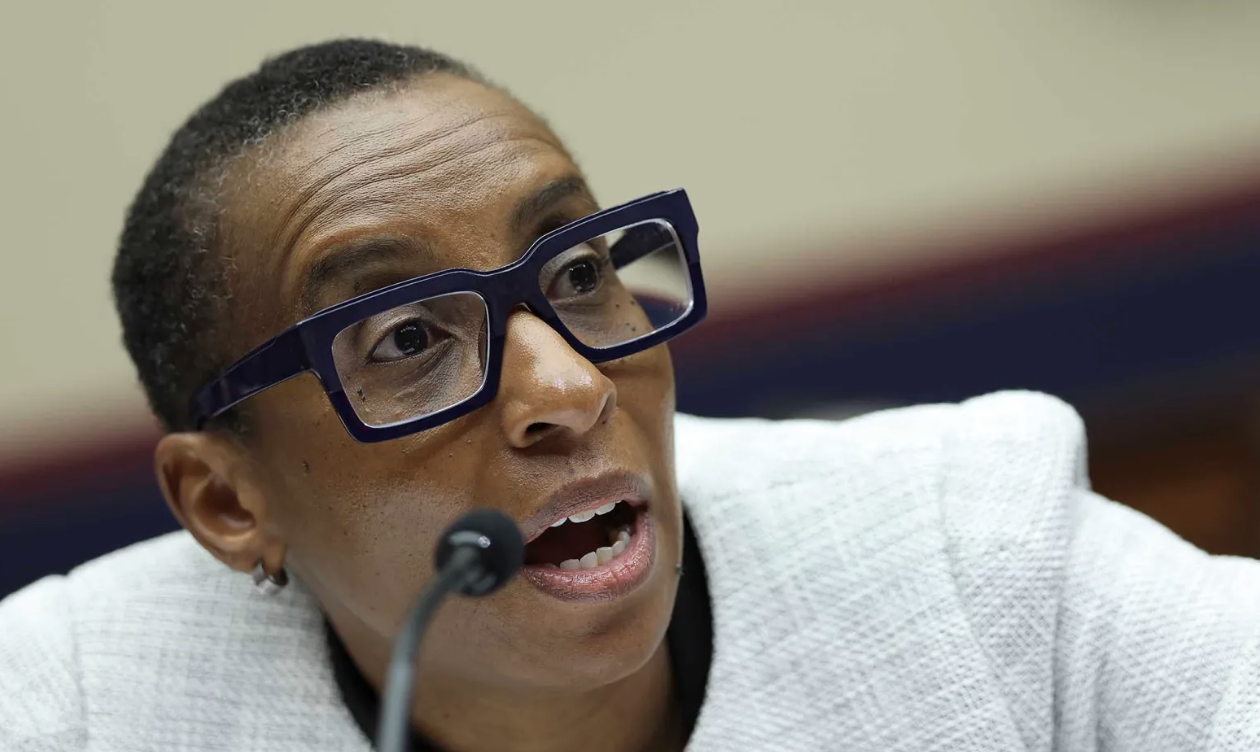By: Becket Adams – nationalreview.com –
Reading the news these days hardly feels like engaging with uncompromising truth-seeking.
The stuff the corporate press chooses to pump out now, and the editorial choices they make regarding what is pursued and what is not pursued, has all the feel of public-relations work tailored specifically to excite and inspire a specific fan base of left-wingers.
Take, for example, the national news coverage of Harvard University’s great shame, President Claudine Gay.
Gay beclowned herself before Congress recently when she equivocated over the simple question of whether “calling for the genocide of Jews violates Harvard’s code of conduct.”
“It depends on the context,” Gay hemmed with a side of haw.
Her mealy-mouthed response was so poorly received that calls for her resignation inevitably followed. The embarrassment deepened as the Manhattan Institute’s Christopher Rufo and Karlstack’s Chris Brunet uncovered examples of plagiarism in Gay’s doctoral dissertation. The Washington Free Beacon then outed Gay as a serial plagiarist, a revelation not given its due attention by legacy-media outlets.
“Harvard University president Claudine Gay plagiarized numerous academics over the course of her academic career, at times airlifting entire paragraphs and claiming them as her own work,” the Free Beacon reported, having asked several scholars to review her small output of papers.
The Free Beacon report stated that, “in four papers published between 1993 and 2017, including her doctoral dissertation, Gay, a political scientist, paraphrased or quoted nearly 20 authors — including two of her colleagues in Harvard University’s department of government — without proper attribution.”
“The Free Beacon worked with nearly a dozen scholars to analyze 29 potential cases of plagiarism,” the report explained. “Most of them said that Gay had violated a core principle of academic integrity as well as Harvard’s own anti-plagiarism policies, which state that ‘it’s not enough to change a few words here and there.’”
Of the grand total of eleven papers Gay published, at least five contain plagiarized materials. Harvard isn’t worried, though. For the university’s trustees, it’s not real plagiarism — even though it appears to violate the school’s own stated definition — just an academic oopsie.
What’s equally disconcerting, however, is the selective silence of major newsrooms on this matter. Why did we read of Gay’s plagiarism first in the Free Beacon and not in the New York Times or the Washington Post? For that matter, why did we not read of it first in the Boston Globe? It’s in that paper’s own backyard!
Why is it that the New York Times’ only input on the matter has been a December 12 report, “Harvard Clears Its President of ‘Research Misconduct’ After Plagiarism Charges,” that all but absolves Gay? Why is it that the Boston Globe has published only a single article, “Harvard board says review of President Gay’s writings finds no violations of school standards on research misconduct, but instances of ‘inadequate citation,’” which similarly positions Gay as innocent? Why is it that the Washington Post found the story to be so undeserving of serious coverage that it mentions it only as an aside in the 25th paragraph of a longer report about Gay surviving calls for her resignation?
More importantly, why have the Washington Post, the Times, and the Globe chosen in their meager coverage to trust the word of Gay’s allies against straightforward evidence of her plagiarism? Why have they chosen this route rather than review the work for themselves? Surely these serious, Pulitzer-winning news organizations know what plagiarism looks like when they see it. Surely they have the ability to review, investigate, and judge for themselves. Or is it just not that interesting to them that the president of one of America’s most hallowed institutions is a serial plagiarist? Is it not at least a little bit interesting that Harvard has expelled students during Gay’s tenure for committing the academic infraction of which she is similarly guilty? Is the Harvard plagiarism story simply not as pressing or newsworthy as, say, a negative interaction between a dog-walker and a bird-watcher in Central Park?
For the big leagues, the answer is a clear “Nope!”
Let’s be honest: The plagiarism story is unattractive to these aging newsrooms because Gay presents a professional and personal embarrassment to their readers — rampant dishonesty on the part of a member of the academic elite and the systemic failures of leadership that keep her in power — and the major papers today aren’t interested in stories that may cause their readers discomfort. They’d much rather a story that makes their readers feel happy or vindicated, such as something about conservatives being small and mean. There’s a reason why, whenever there’s a story involving left-wing malfeasance, many major newsrooms hold off on covering the story long enough until they can make it into something about the Right’s reaction, not the scandal that prompted the reaction in the first place. It’s the “Republicans pounce” trope.
Former New York Times editor James Bennet this week told us something we already suspected when he alleged that his ex-boss, A. G. Sulzberger, told him the paper applies a double standard when dealing with conservatives and left-wingers, with the standard obviously favoring the latter.
But the entire legacy-media apparatus? Apparently!
For certain newsgroups, the job is not about reporting the news, no matter how uncomfortable. It’s about keeping the niche fan base happy and sated, with that niche fan base being dedicated liberal and Democratic voters.
It’s trade journalism. It’s Fly-Fishing Weekly but dressed up to look like Pulitzer-caliber national reporting.
To see this article in its entirety and to subscribe to others like it, please choose to read more.
 Listen Online
Listen Online Watch Online
Watch Online Find a Station in Your Area
Find a Station in Your Area






 Listen Now
Listen Now Watch Online
Watch Online
